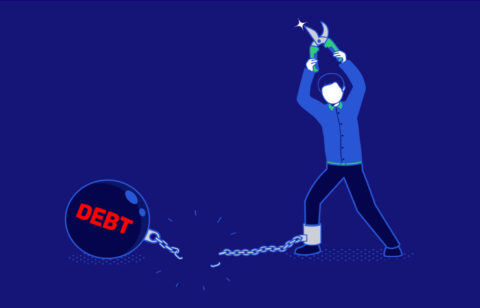There are a lot of financial decisions that can change your life. No matter how simple they may seem, you could find yourself facing a lot of problems in the future if you make the wrong move. This is what got a lot of us in debt in the present. We made a lot of bad choices that led to our failure in managing our money.
Of the many decisions that you should be careful with, cosigning a loan is right up the top of the list. While we all want to help our family and friends, co-signing loans is not one of the best ways to do it. That act can lead to a lot of negative things – even if you think that the borrower is a very responsible person.
Are you really helping others by guaranteeing their loan?
Co-signing is defined by Wikipedia as something that involves promising to pay the debt of another person in case they are unable to do so. It is not the same as counter-signing wherein you merely act on behalf of another. The full responsibility still falls on the person being represented.
When you cosign a loan, that means you are accepting full responsibility for that debt. You are equally liable in case the lender or creditor is not paid on time. Your credit score will also suffer if the person you cosigned for ends up being irresponsible.
Truth is, it is hard to say no to someone close to you when they ask you to cosign their loan. We have that natural sense of wanting to help our loved ones – especially our children and elderly parents. We think that a few simple strokes of your pen is all it takes to help them out of a financial fix. But before you can continue with that trail of thought, you have to ask yourself: are you really helping them? Sure you are helping them get the finances to pursue their goals but is co-signing loans really the answer to the problem?
Here are some thoughts that you need to ponder on.
-
You are giving them the easy way out. Instead of saving up for a certain expense or working hard for it, you are putting name and credibility on the line. You are giving them the easy solution – something that may or may not cost you.
-
You are not increasing the value of their financial achievement. There is nothing more valuable than working hard to achieve something. If you help your loved one by co-signing for them, you are removing the value of their financial goal. They could lose the sense of wanting to take care of something just because they got it without much effort.
-
You are teaching them to rely on others instead of their own abilities. By agreeing to help them with their loan, you are teaching the main borrower to just rely on others to get financial help. They will not think about taking care of their credit history and their personal finances because you can bail them out if they ask for help.
In the end, you know that you are not really helping the borrower with their financial difficulties if you agree to do this for them. Think this over and do not be afraid to say no if you do not feel comfortable with it.
How being a guarantor for someone else can ruin your finances
If you ever co-signed for a loan and you are now in trouble, any financial expert will just look at you with that “I told you so” expression. Most financial experts will tell you flat out to never co-sign a loan for someone else because you are risking more than your finances. You are also putting your relationship on the line. Suze Orman is one the financial advisors who discourage this practice passionately. Here is a video compilation of her thoughts about co-signing loans.
While this is a big no-no, there are instances wherein you are compelled to help someone with their financial problems. For instance, if your child wants to go to college and neither of you saved up for it, you may be required to co-sign for that student loan. If your elder parents are asking for help, this may be something that you can help them with.
But before you agree to co-signing loans, here are a couple of things that you must do first.
-
Choose the people whom you will co-sign for. Even if it is your parent or your child, if you know that they are irresponsible with money, then just say no. You are saving both of your relationships this way – even if you will earn the ire of the one asking for help.
-
Find out why they cannot get the loan themselves. If it is because they have a bad credit history that involves a lot of payment defaults, then do you really want to help them out?
-
Look for alternatives. Maybe the one asking for help can save up for the purchase? Or maybe they can sell some of their assets to get the funds that they need? Instead of helping them with the loan, why not help them get the means to acquire the money that they need? This may be a better option for everyone.
-
Protect yourself before signing. Make sure you review the documents for the loan and you come up with your own agreement with the main borrower. For instance, if you are helping them to finance a business, ask to own a part of that business until your name is cleared from the loan. Only then will you relinquish the rights to whatever collateral they will put on the line. If it is a home or a car, get the title of the car and a signed document that says you get to make decision about that asset. You can decide to sell the asset or tell the lender to sell it in case the borrower fails to make payments.
Only agree to co-sign if you have the money to risk for that particular loan. If not, then just say no.





